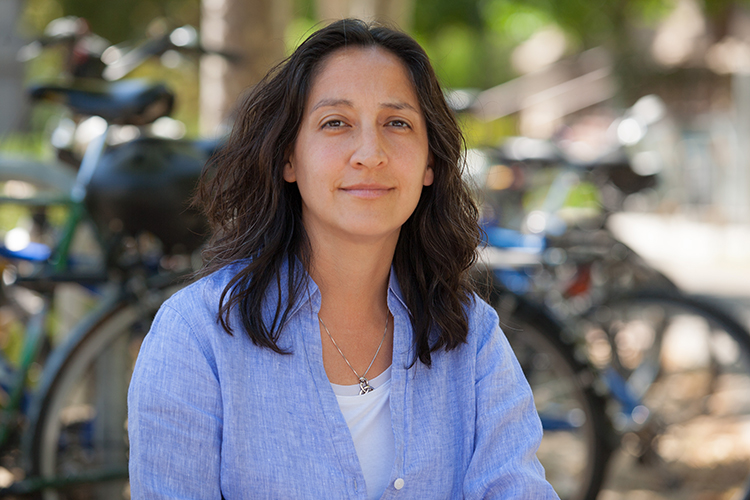Three years in, ‘uniquely Berkeley’ psychedelic research center looks to the future
The UC Berkeley Center for the Science of Psychedelics says a new — and free — online course and first-of-its-kind voter perceptions survey are just the beginning.

August 29, 2023
Launch a free online class about the science and history of hallucinogenics? Check.
Draw thousands of readers to The Microdose newsletter for the latest on psychedelics research, policy and culture? Check.
Train people as psychedelic facilitators, orchestrate a nationwide survey on public perceptions of ecstasy, and traverse a legal minefield in order to use an fMRI machine to observe people tripping on psilocybin? Check, check and — soon — check.
It’s been a busy three years for the UC Berkeley Center for the Science of Psychedelics. Since it was launched in fall 2020, the center has evolved into an academic hub for innovative psychedelic research and training, leading national conversations around psychedelic policy while also informing fundamental advances in neuroscience and molecular biology.
The young center has even grander ambitions, chief among them charting the path to the intellectual crossroads between psychedelic science and society.
“You can go on social media and find someone waxing lyrical on their personal theories about psychedelics,” said Imran Khan, the center’s executive director. “But it’s much harder to access rigorous, evidence-based content on these important, complex substances.”
That’s why the Berkeley Center for the Science of Psychedelics recently launched its open-access online course on the subject — a project Khan and others are commemorating next week.
“We’re in a unique position at Berkeley because some of our professors have been teaching this subject for decades,” Khan said. “So we’re really proud to have taken these resources to this new global audience.”
Berkeley News spoke with Khan about the center’s recent work, the surprising ordinariness he’s encountered while working in this field, and why public polling suggests the next five years will be pivotal for psychedelic science — and society.
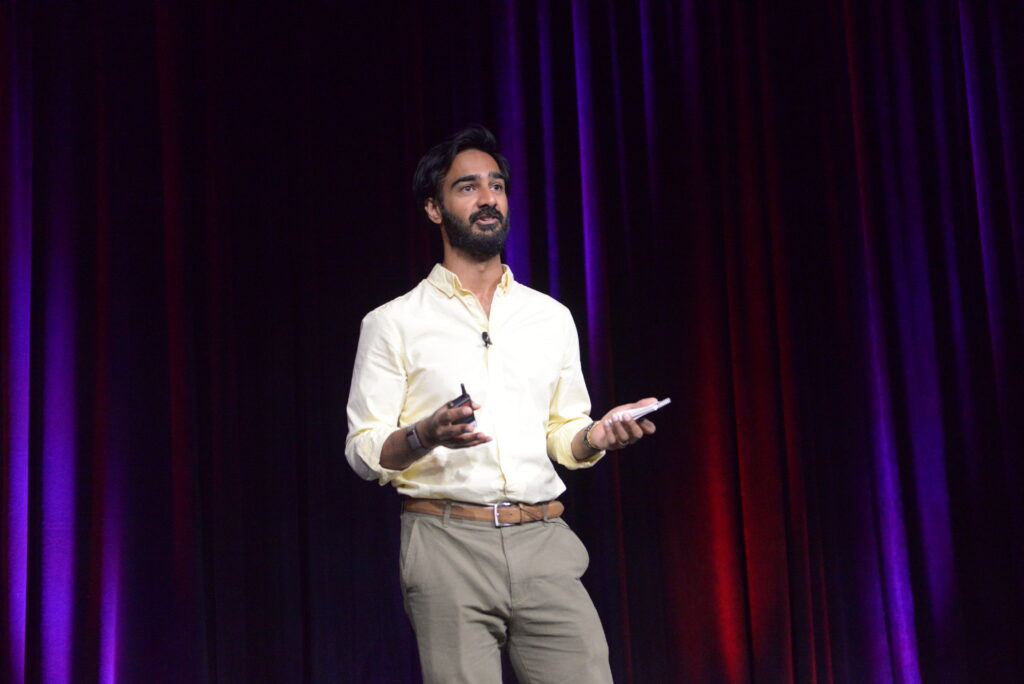
Courtesy of UC Berkeley Center for the Science of Psychedelics
Berkeley News: The BCSP started three years ago. You’ve been here for about a year now. How’s it gone, and what stands out about why this work matters now?
Imran Khan: It’s been really fascinating. I’m relatively new to the psychedelics field, and it’s one that is growing and changing incredibly quickly. One of the things that attracted me is that psychedelics are fascinating enough on their own, but they also run up against everything from medicine to law, religion to politics, and business to climate. They have increasing and surprising relevance to an amazing cross section of culture.
Working at the BCSP feels like getting a front-row seat to what could be a vital and impactful long-term change in how our society works, and like an opportunity to ensure that it works for everyone.
Psychedelics are changing how we do neuroscience research. They might be changing how we do delivery of mental health services at scale. They could change how people feel a different connection to nature, or to themselves. And the fact that all of that is happening simultaneously is both exciting and challenging. Being at an institution like Berkeley that prides itself on being independent, being rigorous, being research- and evidence-led, as well as socially inclusive and progressive, feels like the perfect vantage point to be effecting positive change on these issues.
What’s the most surprising thing you’ve noticed?
I thought there would still be more nervousness or stigma around trying to set up a psychedelic research center at Berkeley. And, obviously, people have questions. People are aware of the risks inherent with psychedelics, and they understand the legal landscape where psychedelics are controlled substances. But there’s been much less of an overt concern than I would have expected, coming into the role.
There’s an awareness that, despite the complexities of studying them, psychedelics need to be understood better.
Imran Khan
People around the neuroscience institute, around the campus, and around just the Bay Area in general, see psychedelics as a wholly legitimate area for research and inquiry. There’s an awareness that, despite the complexities of studying them, psychedelics need to be understood better. The view seems to be, “Of course Berkeley should be looking into this kind of stuff,” and that there should be a center at Berkeley that takes a rigorous, independent, nuanced view on all of this to support society.
So if anything, I’m kind of surprised by the relative lack of stigma and pushback. It’s really refreshing that there’s less of a hangover from the decades-long, anti-psychedelics propaganda and more of an appreciation for a compelling and timely set of questions to be asked.
Recent BCSP polling found that a majority of voters — 61% — supported legalizing regulated therapeutic access to psychedelics. That seems really significant. Is it?
We have competing political narratives around psychedelic hype or psychedelic stigma. Are we expecting too much from psychedelics — or do we have overblown fears? There’s a paucity of national data on what the public at large really thinks and hopes about psychedelics — especially people who aren’t in the psychedelic bubble or doing research, or perhaps living in geographical hotspots where the substances are more accepted. So in our survey, we set out to answer, “How does the voting public really feel about psychedelics?”
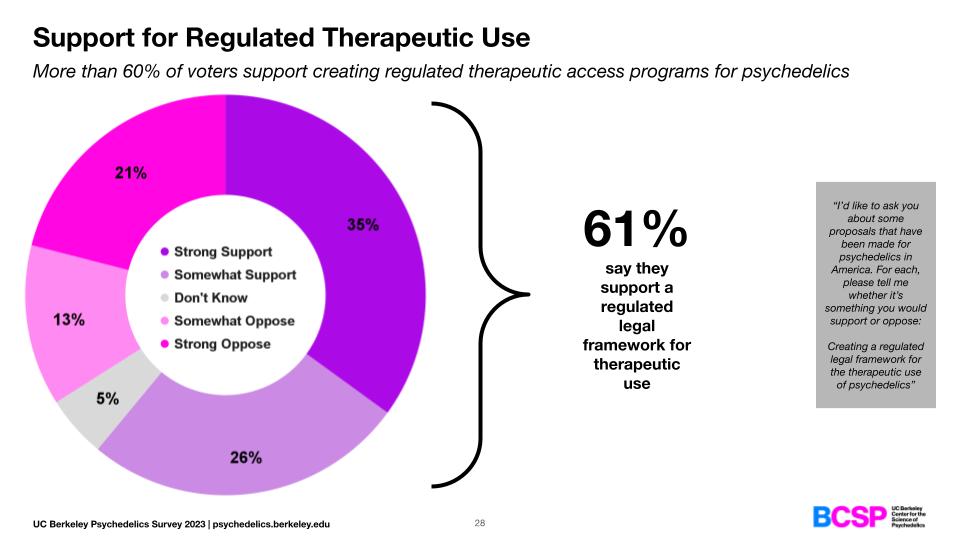
UC Berkeley Center for the Science of Psychedelics
We found that a clear majority of voters would be in favor of policy change. Around half of voters said that they recently heard something about psychedelics, suggesting that awareness is pretty high. Another half of voters also said that they have what we’re calling a first-degree connection with psychedelics, meaning that they or someone close to them has used psychedelics.
This shows that psychedelics certainly aren’t the niche, underground topic they’re often portrayed as. So yeah, I think — to some extent — the numbers are fairly surprising.
We took a look at the stats on support for same-sex marriage and support for cannabis legalization. They showed that it took decades of campaigning for advocates to get support for those policies to reach six in 10 voters. To be clear, we’re not advocates at UC Berkeley. We’re not pushing for particular policies relating to psychedelics, beyond the need to understand them better. But we are interested in what people think, and why. And the fact that a clear majority of voters are already at the place where they would support that level of policy change signals to me that sentiment about psychedelics is remarkably strong.
I imagine that relates to state-level psychedelic decriminalization efforts. What does your survey show when it comes to those local efforts compared to the broader, national picture?
Both Colorado and Oregon recently passed measures that would allow the kind of therapeutic access to psychedelics that we asked about in the nationwide survey. The specifics and the terminology vary, but broadly that’s the intent. And neither of those ballot measures got to 60%. These are states where there was a concerted effort to kind of get a measure in favor of this kind of change. There were campaigns. Those states were specifically chosen to launch the campaigns.
Obviously, this poll captured a kind of particular moment in time. But it seems to suggest that the national picture for support for change to that psychedelic policy could be even more favorable than you might predict from state-specific efforts. That’s something to pay attention to, in terms of managing both the potential benefits and risks of psychedelics.
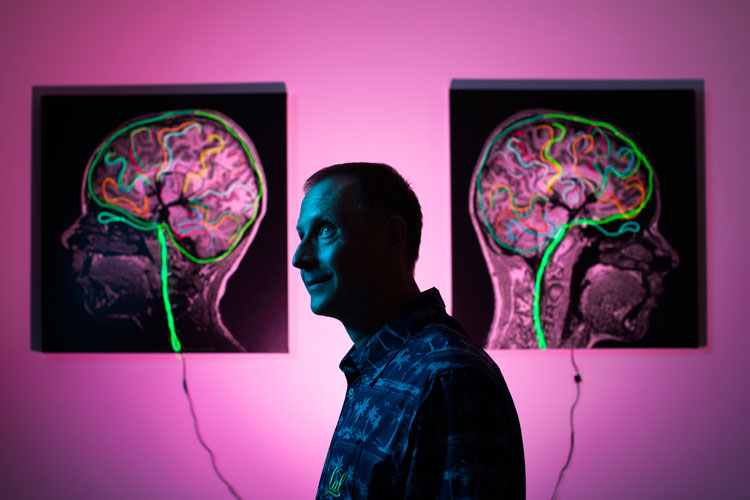
Elena Zhukova for UC Berkeley
It’s interesting because there’s not a clear baseline from which to compare this. This is sort of an original, first-of-its-kind type of survey, right?
As far as we can tell, yes. There’s definitely state-level data, but we’ve not found other comparable national-level data like this. We’d love to collect this data year-on-year, so we can start to identify trends. But that’s dependent on us securing new funding to continue the study.
One of the other stats that jumped out to me is that 78% of people thought it was important to make it easier for researchers to study this. That seems to be perfectly in line with what you and your team are working on here, right?
Absolutely. The BCSP exists first and foremost to try to understand these substances better. There’s tremendous potential in them. But I’d say there are also significant risks and even more unknowns. We don’t truly understand how they work.
We’re so near the beginning of an inquiry that I hope is going to last many more decades.
Imran Khan
For example, many people have seen all of these headlines in the media about psychedelic-assisted therapy potentially curing PTSD, and having these dramatic effects on depression, and potentially being used in everything from substance use disorder to eating disorders. And we obviously need more of that research in the clinical setting. But one of the questions it begs is: How are psychedelics actually having these effects?
Having worked in this role for almost a year now, it’s surprising to me how little we know how they work. For example, why is it that these substances create the conditions where you can have these really, really dramatic changes in mental health? You might say, “Who cares how they work, as long as they do work?” That’s certainly a valid approach in medicine at large. But if you want to maximize the benefits and minimize the risks, or if you have even a passing curiosity about the nature of the mind and brain, these are incredibly important questions to answer.
So yes, the fact that our survey shows that people think that research is really important definitely aligns with our own mission.
There are a lot of other research institutions around the country and world asking similar questions about psychedelics. What makes what Berkeley is doing unique?
There are two things. One is that a huge amount of the research is focused on clinical and therapeutic applications, which is absolutely needed. Given the scale of suffering that’s out there, and given the promise of these substances, we need to be doing psychedelic drug discovery and clinical trials, and figuring out how we can combine psychedelics with therapy to deliver potentially life-changing treatments to people. But one of the things that sets Berkeley apart is that we intend to focus on the underpinning of science behind psychedelics, rather than solely on the applications.
We’re saying that, as well as doing that therapeutic work, we as the research sector also need to understand how these substances are working. What are the underlying mechanisms of action, and how do we understand them on a molecular and neuroscientific level? How do we understand their effects in society? So one thing that sets us apart is we’re trying to focus on that so-called basic and curiosity-driven research.
And the other thing is that we’re combining the research with trying to have an impact in medicine and in society. Many universities and other research centers have a deep focus on clinical and lab work. We’re combining that with training psychedelic facilitators, and trying to understand how to do that well so the whole sector can benefit. We also have this commitment to doing public education and supporting journalism. So the ability of Berkeley to combine the research with the commitment to explain their research in laypeople’s terms and in an accessible way — especially financially accessible courses and training — is an example of what we want to be and how were different.
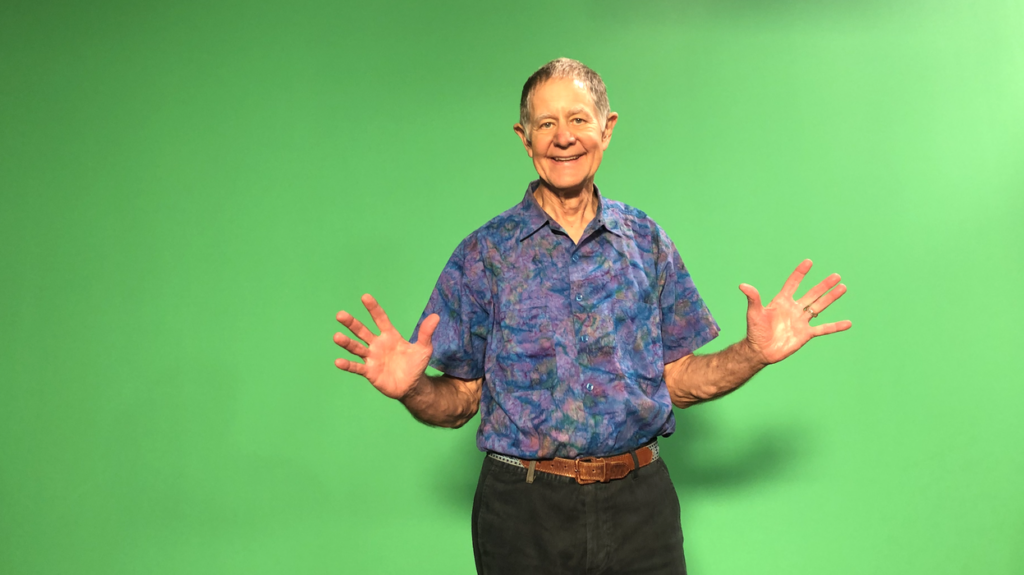
Courtesy of UC Berkeley Center for the Science of Psychedelics
Tell me about this class you just launched. It’s free and open worldwide. Am I correct in understanding that the neuroscientist David Presti teaches it?
Yes, it’s quite an amazing thing, really. David Presti is a legend at Berkeley and is known especially for his Drugs and the Brain course. When I tell people what I do for a living, they often first respond by telling me how much they loved learning from David in person many years ago. What we’ve done is convert that class into a high-quality multimedia and interactive online version available worldwide for free. It’s a university-level course on the history and science, as we know it, about psychedelics.
As far as we’re aware, there’s no other course like Psychedelics and the Mind that’s comprehensive, free and focused on psychedelic science. It feels like a uniquely Berkeley thing to be able to offer.
We want it to be accessible to as many people as possible, so we plan to continue promoting it. But we also want it to be a baseline so that we can then launch further courses. For example, we’re interested in explaining the medical side of psychedelics, or the connection between psychedelics and particular communities — whether that’s certain racial groups, veterans or people who come from specific professions who want to understand the nature and implications of psychedelics.
There’s tremendous potential there for us to continue being that link between what’s happening in research and practice and meeting the need and the desire to know more in the future.

Courtesy of UC Berkeley Center for the Science of Psychedelics
What will the story about psychedelics be in five years?
I think one of the things that attracted me to this role is that I don’t think anyone can really know the answer to that question. We’re near the beginning of a journey with psychedelics. These substances have been used for decades, centuries and millennia, in some contexts, and there’s now been this fairly recent resurgence in popular, cultural and research interest in them. We’re so near the beginning of an inquiry that I hope is going to last many more decades. There are questions that we don’t even know enough to ask, at this stage.
When it comes to research, the BCSP is starting out in the hard sciences, particularly neuroscience and molecular biology. But that’s not where we want to end. We’re planning to include arts, humanities and the social sciences. There are so many questions and connections in everything from art to archaeology to law to business. What’s going to happen when psychedelics eventually become even more mainstream, and run up against all of these other disciplines? There’s a lot of work to be done.
With Berkeley being such an amazing interdisciplinary institution, with scholarship going on in so many different fields, it feels like the right place to be trying to do this work and connecting research with practice, scholarship with the public, and science with society.

